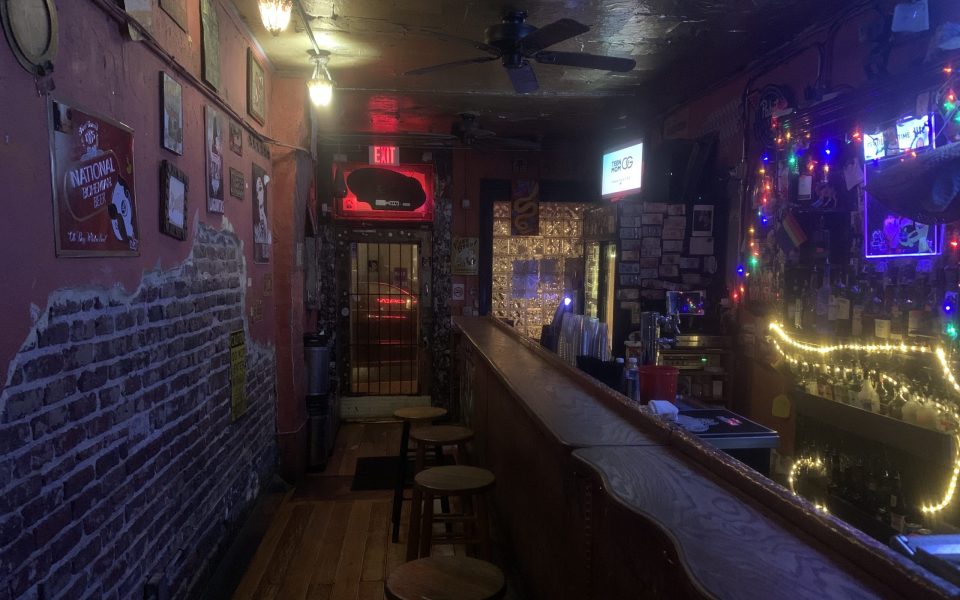Most bars have a “no fly list.” That is, a list of people who are no longer welcome in the establishment. The reasons for this vary from place to place, but the gist of it is usually the same. Persona non grata. They may have skipped one too many tabs, or maybe they’re toxic individuals or they can’t keep their hands to themselves. They might have started fights, threatened someone, smashed a bottle, or gotten sick on and around the bar.
One incident that is seared into my memory is a patron who didn’t want to be kicked out, so they locked themselves in the bathroom with the negligible latch and stripped down to nothing because they thought the bouncer wouldn’t touch a naked person. That approach worked, until it didn’t.
The thing is: Those people always come back, at least once. Some don’t even know they’re banned, and you have to remind them. It’s only natural that some don’t remember being kicked out of a place when they can’t even remember what city they were in the previous night.
Now the bars are open in their newfound glory, ready to slide back into the business of discretion and no judgement, and there’s a new element to contend with. There’s a volatility at work. The careful consideration of new faces and new behaviors is now underscored with apprehension. Even some regulars you missed might come in with a brand-new outlook on the world and their place in it.
With the recent uptick in violence in public establishments (and believe me, it is widespread enough to warrant a serious look at it), the people who work on the front lines are hyperaware of their customers.
Most don’t get paid enough to gauge the mental health of perfect strangers upon a glance, but we have to for our own safety and that of the people we serve. We must, because no one else is doing it.
Like always, the judgement of cutting an unstable person off before they’ve even started is left to the people who are just there to serve them, make some scratch and go home to their lives.
I tend to watch the customer more these days. You take into account the mood, the movement, their conservation. You watch for cues, read the room. Things are still tense, for all of us. Most of us need a release without constantly worrying about someone starting shit, especially now. I find that I have to check myself more often as well. My patience with customers (and friends) who have fallen back into the same routines and behaviors is trying, at times. My patience with myself is tested for the same reasons. During the past year, a lot of people had a grand opportunity to reinvent, improve, and succeed when they couldn’t before. They had time. They had a chance, so many did. But this is the quiet part, where the dust is starting to settle from the societal upheaval, drastically changing peoples’ lives, good and bad. I think that some people are seeing the raw deal they’ve been given with new eyes. What does one do with that knowledge?
They react.
They react with the means at their disposal. If that means acting out in a public place among strangers with mixed results, then that’s exactly what will happen. The ensuing emotional toil of the past year is all too apparent when inhibitions are muffled with mixed drinks and the Id pokes its head out to check on the state of the society.
I’m happy to still not see some people from the past year. It’s makes me think they succeeded elsewhere, and maybe they have. Still, for others we have to remind them that “You’re supposed to be adults, and we shouldn’t have to be babysitters.” Part of the job is making sure people feel safe in an establishment and having them want to come back.
Then again, part of the job is explaining why a “Tito’s and Vodka” is just vodka.
Join the First Amendment Society, a membership that goes directly to funding TCB‘s newsroom.
We believe that reporting can save the world.
The TCB First Amendment Society recognizes the vital role of a free, unfettered press with a bundling of local experiences designed to build community, and unique engagements with our newsroom that will help you understand, and shape, local journalism’s critical role in uplifting the people in our cities.
All revenue goes directly into the newsroom as reporters’ salaries and freelance commissions.


Leave a Reply